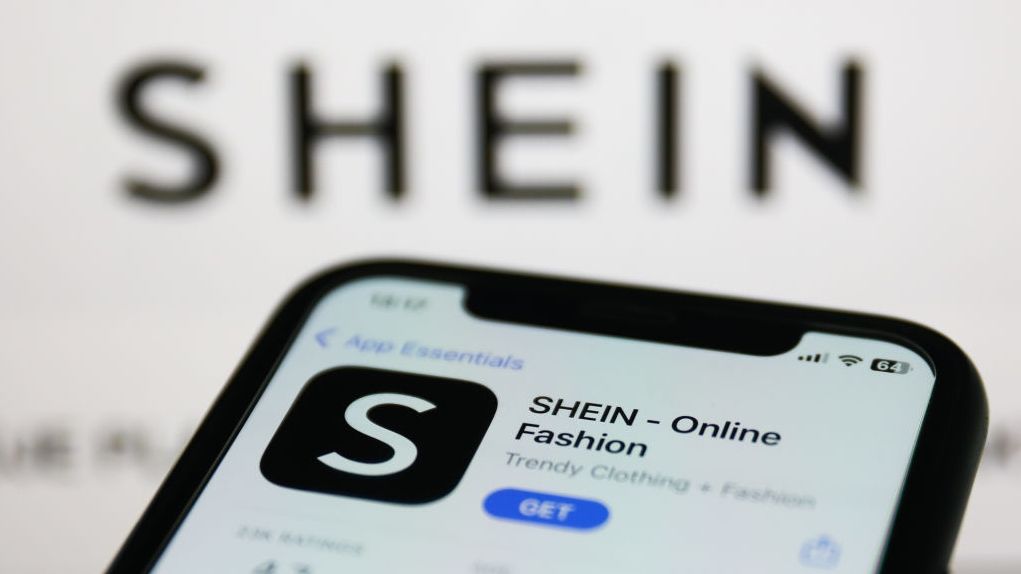Shein, giant of custom fashion and “dark patterns”

Shein is online platform of Chinese origin for on-demand productssuch as clothing, household items, pet items and just about anything else you can imagine. There are similar stores, but in several ratings it is ahead. It was the fourth most important Chinese brand in 2023, behind tech brands ByteDance, Xiaomi and Lenovo, according to Statista, and the third most popular website in the US in the fashion category, behind Macys and Gap, according to Likeweb. .
“Shein sends information to its suppliers in real time so they can produce fashionable clothing.“
One of the main characteristics of Shein’s business model is Using real-time information to accurately forecast demand. The representative of the CECU Federation of Consumers and Users, Anabel Arias, explained to the RTVE Innovation Lab: “There is fast fashion, which we know as Zara and H&M, which changes seasons from time to time. Shane studies global trends using algorithms and data and creates new clothes in real time. They say that this is one of the main clients Google Trends. That is, he has the tools to know what is in fashion and connect it with production. It sends this information in real time to its suppliers so they can produce fashionable clothing.”
From 18 to 33 persuasion techniques
In 2021, Shein became the number one company for the use of dark patterns – persuasive techniques in web design – according to an analysis of online stores carried out by the Swiss association Public Eye and the Romanesque Federation of Consommateres (FRC). They found 18 Persuasion Techniques for Your Website and Appbehind was AliExpress with 12.
Dark patterns or compelling design techniques such as pop-ups with offers that expire soon, messages “only 5 left”, “free delivery from X euros”.or the fact that we are forced to register in order to buy, is often found in online stores.
“Shein is the most manipulative fashion company in history thanks to its excellent use of dark patterns.“
In Shein’s case, the NGO Greenpeace said in a 2022 report, according to marketing experts, it is “the most manipulative fashion company in history” due to its “excellent use” of dark models such as hide hidden costsmaking customers feel bad if they don’t make a purchase, or hiding advertising.
In November 2024, at least 33 dark patterns were used on the Shein app and website.according to analysis carried out by the RTVE Laboratory for the series “Dark Patterns”. The company removed some of the ones that Public Eye noticed a couple of years ago, but others have emerged. It’s really difficult to navigate their products without interference..
Once the application is downloaded and opened, pop-ups with discount coupons and free shipping when you spend certain amounts. There is also a countdown for products and even for the “buy” button; notifications that stocks are low, bonuses for performing all sorts of actions such as logging into the app daily, commenting on products, uploading photos and videos, sharing them on social networks and much more.
Monitored by the European Commission
The European Commission has appointed Shein as a very large online platform under the Digital Services Act (DSA is an English abbreviation) in April 2024. This law states that when platforms exceed 45 million monthly users in Europe, they have four months to adapt their websites to the rules. This has already happened with companies such as Google, Amazon, AliExpress or Instagram.
The DSA, mandatory since February 2024, aims, among other things, to protect users from illegal goods and content, as well as when exchanging information or purchasing products. Regarding dark patterns, the standard requires companies to “not design, organize, or use their online interfaces in a manner that misleads, manipulates, or in any way materially impairs the ability of users of their services to make free and informed decisions.”
Shein’s adaptation period for DSA ended in August, but the European Commission has not yet made a decision on whether the brand complies with it or not. Who it affected was another Chinese on-demand goods giant, Temu. On October 31, the company opened formal proceedings against the brand following a complaint from CECU and OCU for alleged violation of the Digital Services Act by, among other things, selling illegal products or addictive designs on its website.
The Digital Services Act is failing
According to CECU’s Anabel Arias, the “big problem” with the Digital Services Act is that it excludes the General Data Protection Regulation and the Unfair Trade Practices Directive, or whatever it might be “that they lie to you about the characteristics of the product or do not give you certain information”
“The European Commission must say what types of dark patterns are banned under the Digital Services Act“
“We need the European Commission to say which types of dark patterns are prohibited by this law, and which ones effectively manipulate and limit freedom of decision. Also those that affect from the point of view of unfair commercial practices and data protection,” said a representative of CECU, emphasizing that, since The European Consumer Movement has called for dark models to be banned directly in consumer protection rules. or shift the burden of proof, that is, companies must demonstrate that they do not use manipulative practices on their websites, rather than on users – currently, if a user reports that a website uses dark patterns, it is who who should provide all evidence.
Although, at least in Europe, laws are improving, we are still subject to dark tendencies. At the moment, it seems that the best way to deal with them is to be able to detect them and not fall into a trap.
